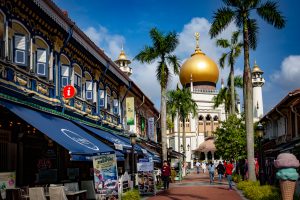Religious Resurgence amongst the Malays and Its Impact: The Case of Singapore
September 11, 2021

On September 11, 2001, the Wahhabi Islamic terrorist group Al-Qaeda launched a series of coordinated terrorist attacks against the United States. In response to calls by the Singapore government to counter terrorism post 9/11, religious extremists, otherwise known as resurgents, ironically strategically positioned themselves as champions of moderate Islam who reject extremist religious views.
In Singapore, the minority position of Malays and the self-perception that the Malay community was without strong socio-economic and political power led to the fixation with preserving an “authentic” Islamic identity, seeking to embrace modernity as the pathway to socio-economic progress while remaining firmly rooted in Islam. In this bid to create an authentically Islamic identity, resurgents have reduced the religion to fixed social, political, legal and economic systems, while not focusing on the concrete problems plaguing the community which would require a good understanding of the actual principles embodied in Islam.
Given the danger religious resurgence poses to Singapore’s social fabric, the challenge to eliminate it cannot be left solely to the Malay community. Overgeneralisations such as how the more one observes religious teachings, the greater the tendency to be more fanatical and exclusive, have only caused for greater aggravation of religious resurgence. A/P Aisha contends that the type of Islam present in the dominant authoritarian political culture has denied the development of positive traits such as rationality and equality. Furthermore, the merging of local culture with Islam must continue to evolve dynamically with the changing conditions of society and not remain trapped in a static worldview of the past.
It is also important for the government to understand that perceptions of Islam in all its dimensions are not monolithically understood in the same way by Muslims. Therefore, the government should not rely on a single group to dictate matters which concern Muslims. This is since these dominant groups often enhance the influence of resurgents, and may end up asserting a monopoly of authority over Muslims in the name of religion. A/P Aisha posits that the government should be the ultimate custodian of the well-being of Muslims, especially since a diversity of religious views and experiences within the community exist. She then suggests that the government should give Muslims the right of choice in being bound to a common system of laws, as this would go a long way in curbing the expansion of resurgence and eliminate the risk of Muslims being subjected to the demands of the resurgents. Lastly, consistent efforts must also be made to develop the rational, progressive and humanistic tradition of Islam for the well-being of the community.
Read the chapter here.
